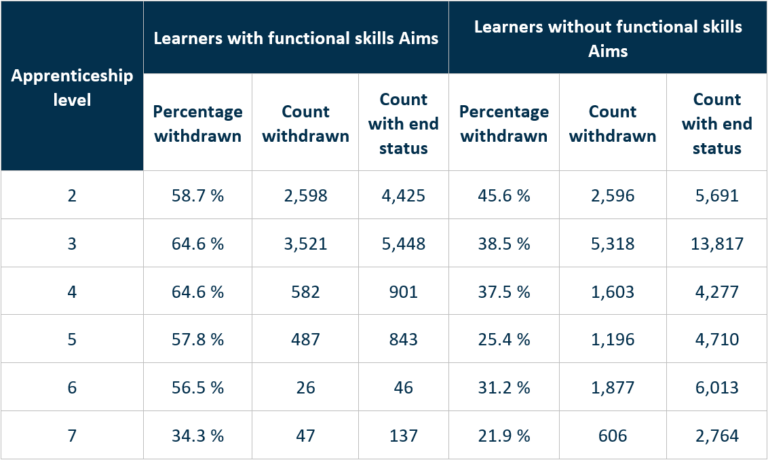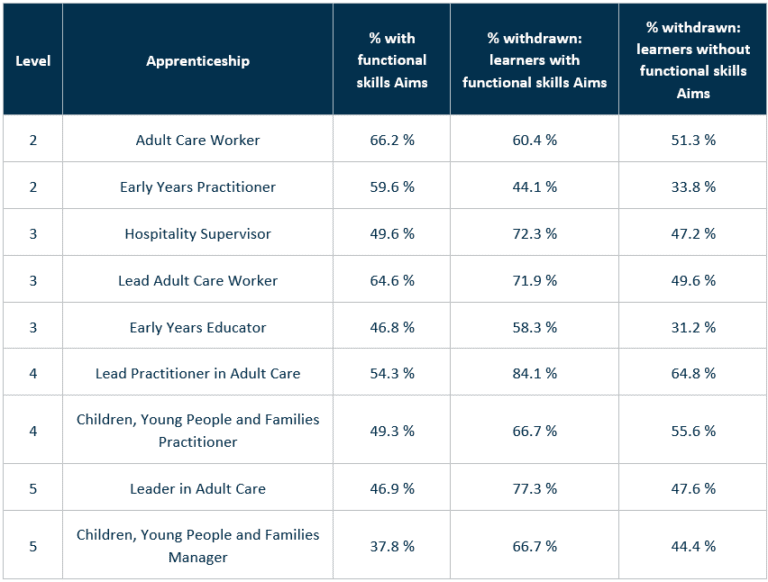A significant number of apprentice learners begin their training without equivalent qualifications in GCSE English and Maths. Under the funding rules, these learners are required to complete functional skills qualifications so they have essential literacy and numeracy skills to deal with information and data at work and in their general lives. In a previous article, we reported on our analysis that the quarter of learners with functional skills aims are more likely to withdraw or have delayed progression in their apprenticeship. In this article, we explore the impact across apprenticeship levels.
Aptem’s research
Aptem analysed data from over 160,000 apprentice learners who were on programme during the academic year 2023/24. We found that 50% of all level 2 learners, 35% of level 3 learners and 29% of level 4 learners were completing functional skills qualifications alongside their apprenticeship main Aim. Surprisingly, we found that a fifth (20%) of level 5 learners were also pursuing functional skills qualifications. However, this was only the case for a small minority of those enrolled on degree level programmes.
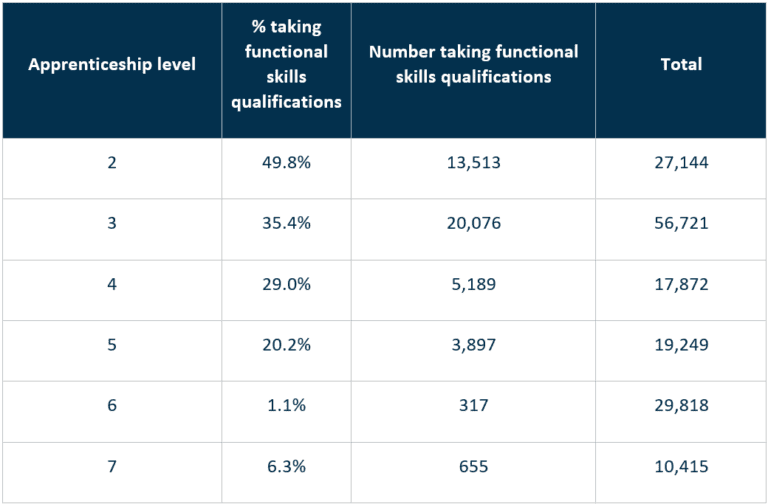
We found overall that more than a third (36%) of learners completing functional skills within their programme were overdue on their programme main Aim compared to around a quarter of those learners without functional skills components.
The impact was broadly similar across all apprenticeship levels. This suggests that regardless of apprenticeship level, learners with a functional skills component to their programme were more likely to be behind schedule. The rates were slightly higher at level 3 (38%), nevertheless the impact is likely to be greater at levels 2 and 3 where programmes are typically shorter in duration and for funding purposes providers rely on a faster turnaround of learners.
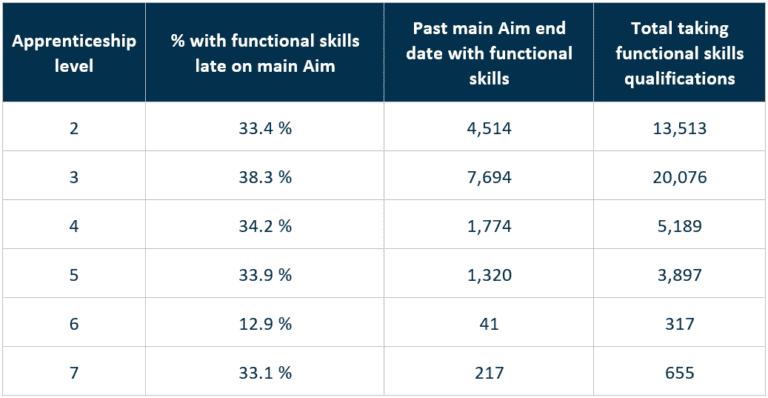
Functional skills and withdrawal
Not only are learners taking functional skills components falling behind at a faster rate, they also are more likely to withdraw from their apprenticeship programme. Overall we found those learners with a functional skills need had a non-completion rate of 62% compared to 35% of learners who did not. The withdrawal rates were slightly higher for those on level 3 and 4 programmes. However, we found the highest impact on level 5 learners, where the drop-out rate for learners with functional skills Aims was 58% compared to 25% for those learners without.
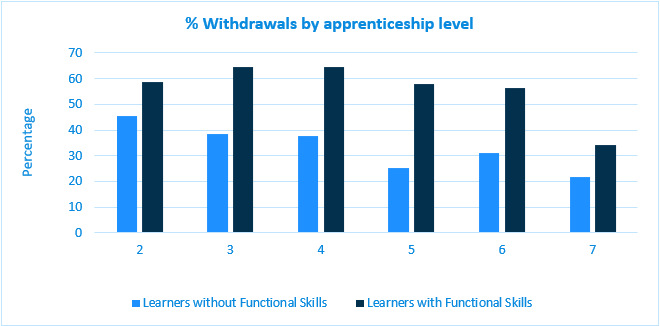
A detailed analysis found that apprentices completing programmes in the care and education sectors had a higher percentage taking functional skills qualifications compared to other sectors. This had a significant impact on withdrawal rates among adult care apprentices compared to early years care.
At level 2, two-thirds of Adult Care Worker apprentices (66%) were completing functional skills with a 60% withdrawal rate. This compares to a relatively high 51% withdrawal rate for learners without a functional skills component. At level 3, 65% of Lead Adult Care Worker apprentices were taking functional skills, with a 72% withdrawal rate. There was a similar pattern for the level 4 Lead Practitioner in Adult Care (54% taking functional skills) with an 84% drop-out rate.
This data highlights the challenges faced by those starting apprenticeships without the required qualifications in English and Maths. The rates of both delayed progression and withdrawal are broadly similar across apprenticeship levels 2 to 5. However, the largest impact on outcomes for functional skills learners occurs for those aiming to complete a level 5 qualification.
Appendix
